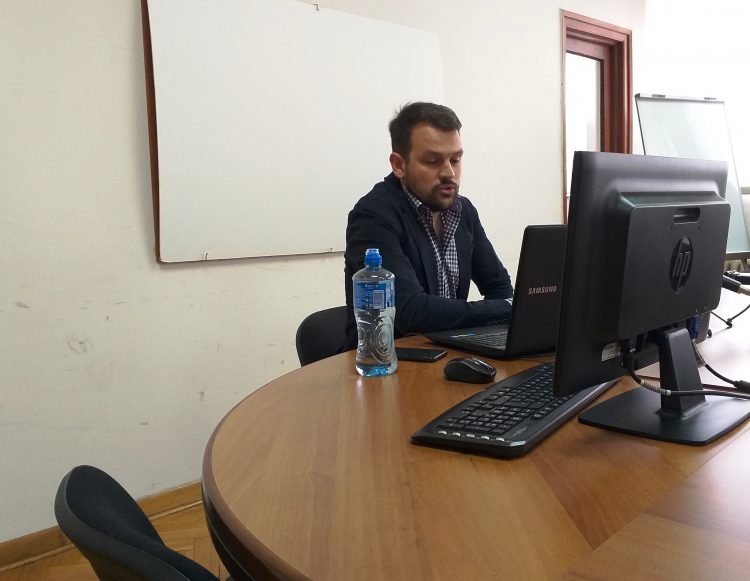Marko Jovanović from the Center for Political Research and Public Opinion delivered a lecture on the topic “The Caliphate in the Discourse of the Islamic State.”
Although the so-called Islamic State has practically been defeated and lost almost all of the territories it once controlled, the idea of re-establishing the Islamic caliphate, which this organization propagates, continues to attract a certain number of people. Therefore, the subject of this work is the investigation of the political discourse of the Islamic State, i.e., the way in which the concept of the caliphate, which plays an important role in this discourse, is used in the official rhetoric of this organization, as well as how the self-proclaimed caliphate wants to present itself to its target group—the community of all Muslims.
In order to approach the study of this discourse, which contains numerous elements of political myth, we will first briefly provide a definition of political myths, pointing to their construction, content, basic functions, and objectives, and then we will reflect on the institution of the caliphate, its historical development full of ups and downs, as well as the legacy this term carries today, which is the result of numerous processes and events that have shaped the perception of this concept and the mythical narrative of the caliphate since the 7th century.
Given the potential that this narrative carries, the Islamic State and its officials, during their greatest successes in the summer of 2014, decided to proclaim the re-establishment of the caliphate. The discourse of this organization claims that by this act, they revived one of the oldest Islamic religious traditions prescribed by Allah’s word and entrusted by Prophet Muhammad and his closest companions.
The main messages contained in this discourse are those about the necessity of action, the promised victory, the utopian character of the caliphate, and the identity message. In its narrative, the Islamic State presents the newly re-established caliphate as the promised land, where, regardless of differences, everyone is equal, where absolute equality and justice prevail, where solidarity and the spirit of brotherhood are so widespread that everyone who comes will immediately feel that they belong there. It is the place where every true believer will find their home.
The main socio-psychological and political functions of these messages are, certainly, homogenization, strengthening identity and self-esteem, motivation for collective action, and political mobilization for achieving political goals. To enhance the effect of such rhetoric, it contains emotionally charged expressions, already burdened with negative connotations, as well as connections between the present situation and the historical circumstances of the time when Islam was revealed. Of course, it is inevitable to call upon the Quran, thus placing the holiest Islamic text, which Muslims believe to be Allah’s direct word, in the function of legitimizing such claims.

